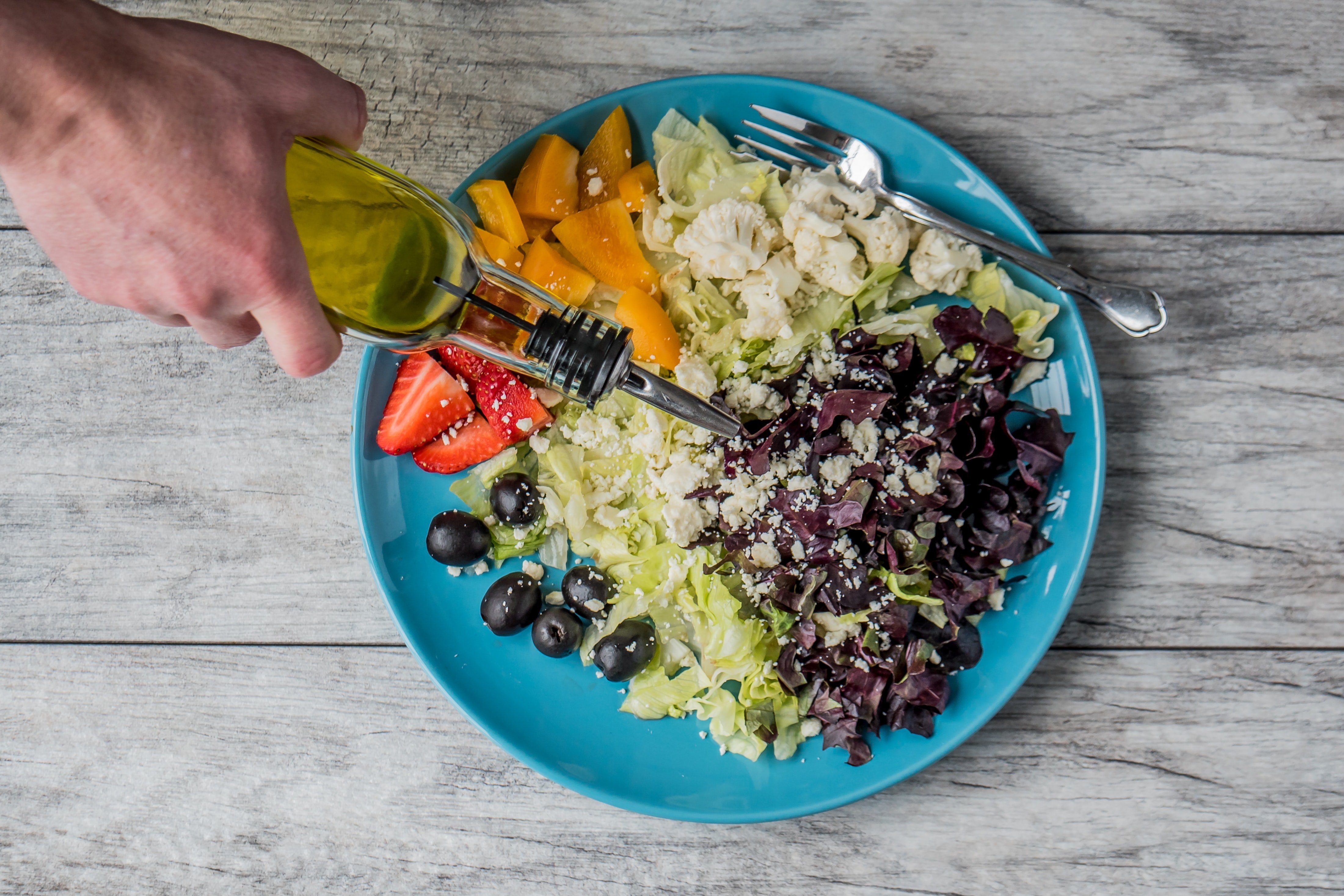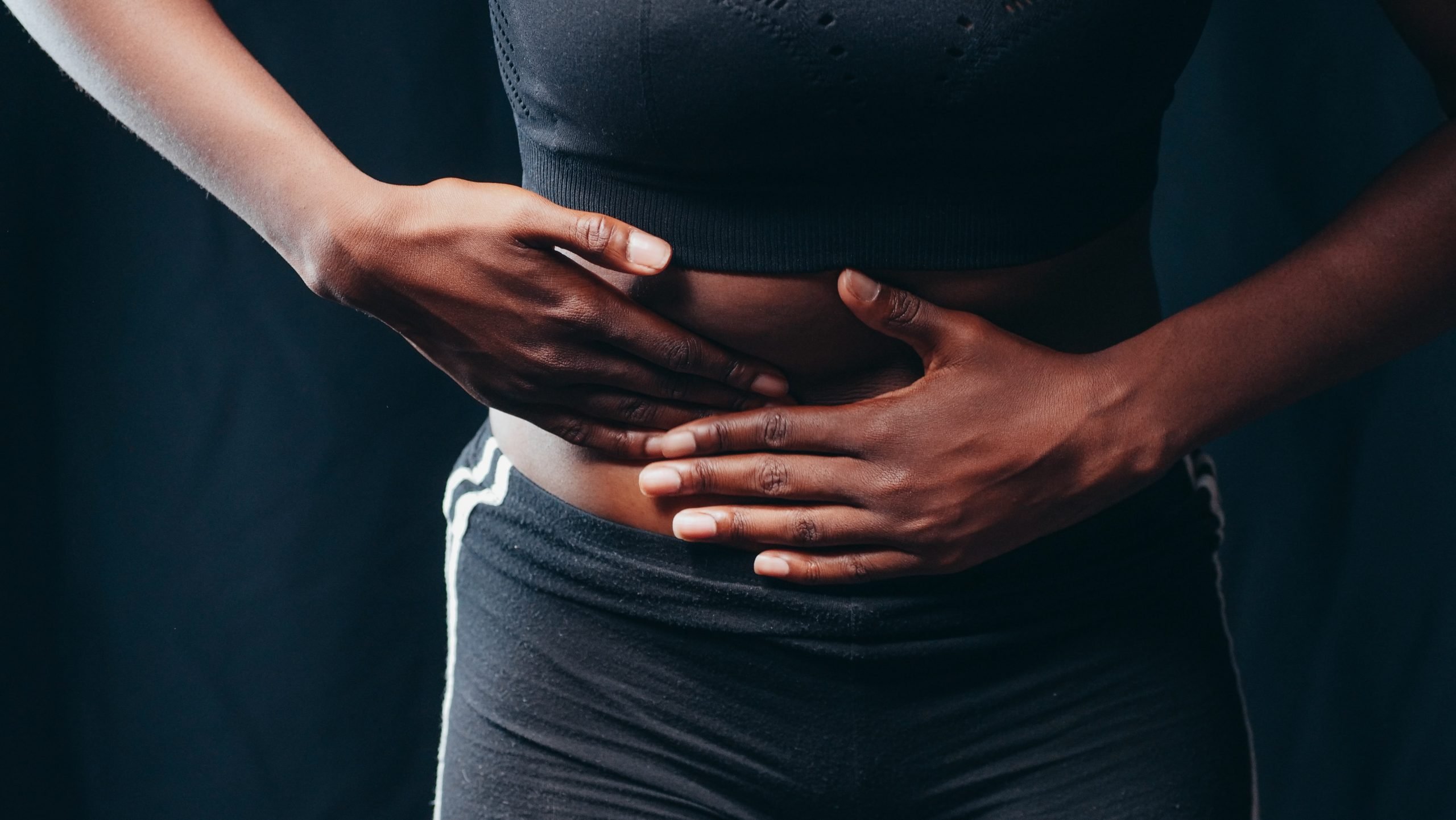What do hormones have to do with weight loss for moms?
Eat less, move more, and you’ll lose your baby weight. Hmmm. It’s missing something. ‘Calories in, calories out’ are not the only factor in determining weight gain and fat loss, especially fat loss from around your waistline.
We posted recently on how increasing your intake of essential FATS and dramatically decreasing the amount of sugar you eat , were two massively important factors in determining belly fat. We’ve established that all calories are not created equal.
We also know that certain types of exercise, ie (that means workouts like the ones MUTU System gives you) are much, much more effective and efficient at burning fat than long bouts of cardio exercise.
But that’s not all. Hormones and lack of sleep – kinda pertinent to moms – can make us store more fat around our middle too.
So what’s the connection between weight gain after pregnancy and hormones? Simply put your hormones, your stress levels and how much sleep you’re getting are all contributing to stubborn belly fat after having a baby.
It’s something that not a lot of moms we speak to are aware of, so we’ve put together a comprehensive article to answer some of your most frequently asked questions…
Hormonal weight gain after pregnancy
The role of hormones in postpartum weight loss and hormonal belly after pregnancy is not exactly straightforward. Hormonal changes that occur during and after pregnancy can influence various physiological processes, including metabolism, appetite regulation, and fat storage.
It’s important to note that individual responses to these hormonal changes can vary, and the extent of their impact on postpartum weight loss may differ among women. Also, it’s worth pointing out that studies into the role of hormones in our bodies and how much they’re impacted by the process of birth show that there’s a lot we still don’t know.
What are the key hormones involved in postpartum weight loss?
- Estrogen and Progesterone: During pregnancy, estrogen and progesterone levels increase significantly, promoting fat storage in preparation for breastfeeding and providing energy reserves for the baby. After giving birth, these hormone levels decline, which can contribute to weight loss. However, the exact impact of these hormonal changes on postpartum weight loss is not fully understood.
- Prolactin: Prolactin is the hormone responsible for milk production during breastfeeding. It has been suggested that increased prolactin levels may aid in postpartum weight loss by promoting the mobilization of stored fat for milk production. Breastfeeding, which stimulates prolactin release, has been associated with enhanced postpartum weight loss in some studies.
- Leptin and Insulin: Leptin and insulin are hormones involved in appetite regulation and energy balance. During pregnancy, resistance to these hormones can develop, which may persist in the postpartum period and impact your ability to lose weight. Insulin resistance may affect the body’s ability to effectively utilize glucose for energy.
- Ghrelin: Ghrelin is a hormone that stimulates appetite. Some studies suggest that ghrelin levels may decrease after giving birth, which could contribute to decreased appetite and potentially support postpartum weight loss. However, more research is needed to fully understand the role of ghrelin in postpartum weight changes.
Hormonal belly: Are my hormones why I can’t lose weight after birth?
Hormonal changes alone cannot solely explain postpartum weight loss or gain. Factors like diet, baseline physical activity levels, sleep (and lack of it), stress levels, and your overall metabolism contribute significantly. Lifestyle factors, including nutrition, exercise, balancing rest and care, are all equally crucial components for healthy postpartum weight management.
For some women, pregnancy and postpartum can bring up symptoms which might lead to a diagnosis of an underlying thyroid issue. In that case, hormones may be a bigger factor in losing weight after pregnancy.
How can I reset my hormones after pregnancy?
Like so much in our culture, tips for hormonal health often come packaged as supposedly easy solutions. Unfortunately, that’s not the case. For most of us, just one supplement or super juice is not going to be the magic trick to a smooth hormonal transition and rebalancing after birth.
Your body will undergo some hormonal shifts all on its own in the weeks and months after giving birth.
There’s also some iffy stuff on the market around weight loss and hormonal supplements. Make sure to really vet where you get your information and that what you decide to take (herbs, supplements, etc.) are safe for pregnant, postpartum, and nursing parents.
Hormones and weight loss – the balance determines how much fat you store
Not hours on the treadmill, or whether your sweet treats are organic or not. Hormones and weight loss are connected. The sugar in our diet (and remember this isn’t just the obvious sugar, but all refined carbohydrates like bread, pasta or processed foods as well) increases the insulin in our body, and it is insulin which makes us more likely to store fat, not burn it. The effect of hormones on weight loss and how insulin affects body fat storage is explained here and here.
Another important hormone in fat storage, and particularly on fat storage around your waist, is the hormone Cortisol. Cortisol decreases muscle mass and encourages belly fat storage. Not good then. It is caused by… STRESS!! Not just emotional, or mental stress (something many mums deal with on a constant and daily basis) but also physical, or body stress. Our bodies become stressed when we give then too much sugar or caffeine, when we’re not taking care of ourselves, or we don’t get enough sleep. All these factors will increase cortisol levels, and therefore, tummy fat.
Lack of sleep: the impact on hormones
Lack of sleep is a big factor affecting cortisol levels and unbalancing our hormones and weight loss efforts. The less sleep you have, and the later you go to sleep, the higher your levels of cortisol in the morning.
So for every mum chasing her tail trying to do it all, be it all and have it all, surviving on a few hours sleep a night and constantly stressing about everything and everybody else… (that’ll be most of us then)… we have some work to do if we’re going to get these hormones back in balance.
I know the sleep part often can’t be helped. That’s just the reality of parenthood. And the stress part isn’t always contain-able. But there are lifestyle changes, as well as diet and exercise changes, that we can make, which will have a dramatic effect on our body’s predisposition to hang onto fat around the middle.
Here’s some ways you can start to re-balance your hormones, within the confines of being mom!
Hormone balancing food: natural ways to rebalance
That’s Food, as in MUTU Food. Not Calories or ‘Diet’
- Eat mostly vegetables, followed by protein, with the smallest portion being starches or grains. Protein increases levels of other hormones (namely HGH and testosterone, but don’t worry too much about that, they just do. I’m working on a ‘need to know’ here ? ) which counteract the insulin spikes and bring levels down. Your plate should have portion sizes in the above order of size: biggest: vegetables; middle: protein; smallest: starches or carbohydrates.
- Get your essential fats. Fish oils (more on how to get your essential fats from the right seeds , fish or supplements here). Omega 3’s will also help balance your hormones and reduce fat around your waistline
Hormone balancing exercise: postpartum fat burning and reducing fat storage
Exercise can have a positive impact on hormonal changes and hormonal imbalance during the postpartum period. It promotes the release of endorphins, aids in cortisol regulation, and supports insulin sensitivity.
By incorporating regular physical activity into your routine, you can help your digestion stay regular and manage your stress more effectively, which both help keep your hormones balanced.
- High intensity, interval based workouts are infinitely more effective and efficient at burning fat and reducing fat storage than medium or long cardio sessions are
- Your workouts must include resistance training. Resistance training means using weights, heavy ones. But you don’t need dumbbells… your own body weight is heavy enough! MUTU Intensive moves like squats, the gecko, press ups and pull ups, using your core correctly, are resistance training but with your body as the weight! Resistance training is essential to balance your hormones in a way that will increase lean muscles mass (that means tone and shape, not bulk) and decrease fat storage around your waistline.
Engaging in physical activity can boost your overall energy levels. It may seem counterintuitive, (especially when you’re sleep-deprived from a newborn sleep schedule) but exercise has been shown to increase energy levels and reduce fatigue. By incorporating moderate-intensity exercises like strength training or low-impact cardio, you can experience an energy boost that helps you navigate the demands of motherhood.
Hormone balancing your lifestyle
- Get more sleep. I know, I know. My daughter didn’t sleep more than 4 hours in one go until she was 5 months old (I might be an exercise ‘expert’… but I’m sure as heck not a parenting one…). We have to take what we can get. But there are probably some nights when the reality show really could be sacrificed and you could grab an extra hour or so. If you have a small baby, that advice to ‘sleep when the baby sleeps’ really does make sense! We all do it: ‘well I’m up now/the laundry needs doing/I’ll just get this room tidied up/ I’ll just watch this daytime show and have a cup of tea and a slice of cake’ But sometimes, just… don’t. Lie down and close your eyes instead. The laundry might not get done but hey, the world won’t stop turning and you’ll feel better (especially when you know you’re reducing your tummy fat by taking a nap!)
- Try, try try to reduce the emotional stress in your life. Take a leaf out of my favourite life coach Dolly’s (yes, as in Parton) book and ‘Don’t sweat the small stuff’. Then take a moment to read this wonderful article by Momastery: Don’t Carpe Diem . Run a bath. Do some yoga, even if its only for 5 minutes… MUTU Breathe teaches you how (breathing properly is surprisingly relaxing you know). Forget the chores and play with your kid. Go for a walk. Phone a friend. Have a cuddle with someone. Smile at a stranger. Put lipstick on. I don’t care how cliched it is or how you do it, but just take a moment and CHILL OUT. You’re doing great at this motherhood thing. Seriously. You’re doing JUST FINE. And you’re allowed a moment.
Come join the MUTU mamas community where you can safely chat about the rollercoaster of postpartum hormones, your weight loss journey, and so much more.












great article. thanks for all your hopeful words.
Hi Wendy,
I am 17 months postpartum and I still have a pouch. I didn’t realize I had Diastasis Recti until 6 or 7 months postpartum and I had been doing intense stomach exercises trying to get the pouch to go away, which made the problem even worse. Prior to being pregnant my stomach was completely flat. I have always worked out incorporating a healthy combo of cardio and weight training and never did stomach exercises. I was very fortunate/spoiled and now I am at a loss on how to get rid of this pouch. I just don’t know if I did too much damage to fix this using the MuTu System. I have googled several safe exercises to do to help close the gap, and I have been doing them on and off for the past 4-5 months, but I still have the pouch. I exercise regularly and I don’t have any excess fat, I just have this stubborn pouch and it’s driving me nuts. Do you think the MuTu System can help me?
Hi Jennifer,
I’d recommend you go for the 12 week option as this involves the core phases that will help to strengthen your core and also the intensive phases for over fitness to get your heart rate up. If you enjoy cardio then you’ll love the Intensive phases. It’s probably best that for now you stick to the program as some exercise can make things worse if you have a weak or compromised core.
It’s never too late to make a difference. We have mamas who are 20-30+ years postpartum.
🙂 xx
I have too much belly fat! I never had such a problem with my belly. I was proud of my belly after my second baby. And even after my third. Then my mom passed away. I went from low carb and not having any sugar but having only xylitol to having chocolate and potatoe chips every night. I gained weight, all that I had ever lost on low carb and then some. Then I tried to lose the weight with low carb eating but I was fed up. I found a high carb vegan diet and I have been trying to live up to that one but it’s tough. It’s suppose to be low fat , low protein and low sodium.
I have never had a bigger belly. Well except when I was pregnant.
I have 4 kids now. I pause before buying your program because I don’t have the motivation to work out on my own. I found that fit body boot camp challenges work for me. It’s a competition to win prizes for losing fat.
I think it’s a peer pressure accountability factor that I need.
Curious if you offer training for people to become certified and then they can offer classes. Or do you have any suggestions of what I should do?
My sister in law introduced me to your work and I’m thankful.
Hey Jaimi. Thanks for your message. It’s great to hear from you.
Firstly – Yes we do offer a certification and have a number of certified MuTu Pros across the US, Canada and UK. Search here: https://mutusystem.com/find-a-mutu-pro
Secondly. My good friend Sandra is the Founder of the Slimpod which I think you might be interested in. It completely eliminates then need for willpower: https://mutusystem.com/mutu
I hope that helps 🙂
Nice blog Wendy. But i am in dire need of your help.pls. myw youngest is 4 y/o and have been struggling with diastis recti for abt 5 yrs…i have a 10 y/o. I work 3rd shift…get absolutely no sleep…and i find it hard to find the correct exercises to correct my protruding belly. Help! #frustrated
Andrea
[email protected]
Nice blog Wendy. But i am in dire need of your help.pls. myw youngest is 4 y/o and have been struggling with diastis recti for abt 5 yrs…i have a 10 y/o. I work 3rd shift…get absolutely no sleep…and i find it hard to find the correct exercises to correct my protruding belly. Help! #frustrated
Andrea
[email protected]
Hi there Wendy. Great blog. A few additional comments though. There are lots of older Moms and those of us whose kids are getting older who actually do have hormonal imbalance. In perimenopause great strategy to do saliva hormone testing as with lowered progesterone ratio you can get symptoms that mimic hyperthyroid so even if you are doing all the right things the weight goes on and the sleep is difficult to get. Then there are things that they can do (eg. natural progesterone via cream through skin) that can really help!
Thanks Heather 🙂
Hi there Wendy. Great blog. A few additional comments though. There are lots of older Moms and those of us whose kids are getting older who actually do have hormonal imbalance. In perimenopause great strategy to do saliva hormone testing as with lowered progesterone ratio you can get symptoms that mimic hyperthyroid so even if you are doing all the right things the weight goes on and the sleep is difficult to get. Then there are things that they can do (eg. natural progesterone via cream through skin) that can really help!
Thanks Heather 🙂
I’m not sure I gave you permission to use that photo of my belly lol! So glad to hear that calorie counting is outdated and nutrition is where it’s at. I’m suffering from a post Easter egg chocolate hangover and I know how bad I felt last night when I got night sweats from all the sugar and caffeine in the chocolate. Today I’m back to my usual lean and green…
I’m not sure I gave you permission to use that photo of my belly lol! So glad to hear that calorie counting is outdated and nutrition is where it’s at. I’m suffering from a post Easter egg chocolate hangover and I know how bad I felt last night when I got night sweats from all the sugar and caffeine in the chocolate. Today I’m back to my usual lean and green…